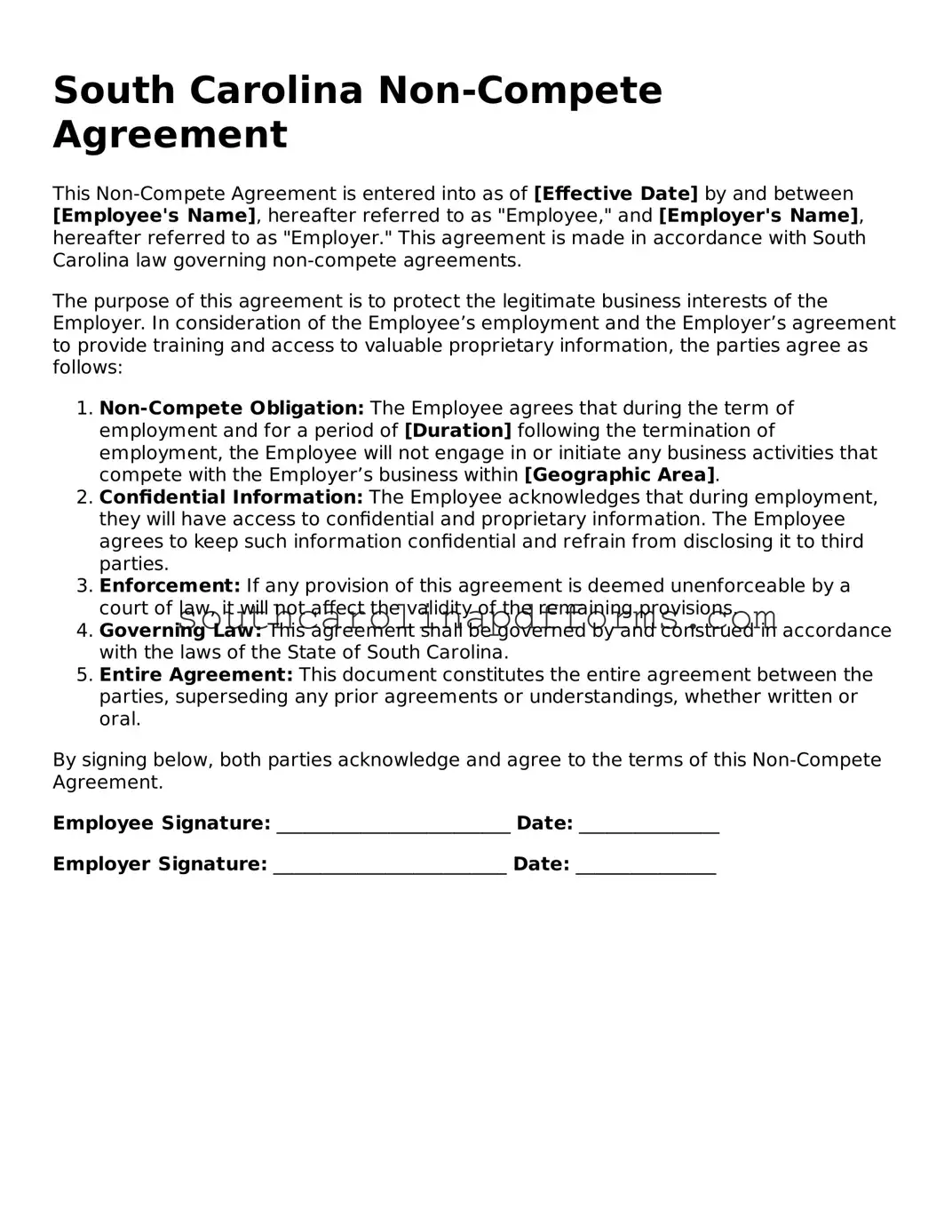Attorney-Approved South Carolina Non-compete Agreement Document
A South Carolina Non-compete Agreement is a legal document designed to restrict an employee's ability to work in competing businesses after leaving a job. This agreement aims to protect the employer's business interests by preventing former employees from sharing sensitive information or engaging in direct competition. Understanding the nuances of this form is essential for both employers and employees navigating the complexities of employment relationships in South Carolina.
Access Non-compete Agreement Here
